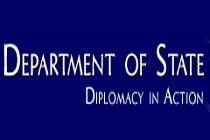Old State Capitol Museum of Political History [LA]
Louisiana's 150-year-old Old State Capitol has withstood war, fire, scandal, bitter debate, and abandonment. Today, the building functions as the Museum of Political History, presenting multimedia history exhibits that engage visitors in an interactive exploration of the events and people that contributed to Louisiana's story. In particular, the "We the People . . ." civic awareness exhibit helps audiences internalize the process of campaigns, elections, and the day-to-day aspects of democracy.
The museum offers exhibits and serves as a venue for press conferences, traveling exhibits, special programs, and an annual lecture series.


